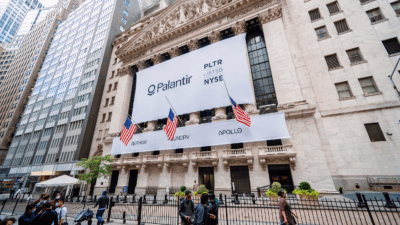
Sign up for smart news, insights, and analysis on the biggest financial stories of the day.
There’s no ‘A’ or ‘I’ in hype.
Of the 229 fledgling companies in the latest batch of startups to earn backing from famed accelerator Y Combinator, 138 are self-billed as working in artificial intelligence or machine learning.
Who, What, Where, When, and Y
Twice a year, Y Combinator brings a new class of baby companies into its fold, offering funding and guidance. And twice a year, onlookers and analysts get to see which types of companies are driving the current zeitgeist and guess which firms could join famed alumni like Airbnb and Stripe.
The ChatGPT bump is already being felt in the program — a reflection of much wider investor interest in getting in on AI’S ground floor:
- Compared to recent classes, this summer’s 138 AI startups is a massive increase. In the winter cohort earlier this year, just 59 firms identified as AI-driven, and last summer’s class included just 22 AI firms.
- About one-fifth of total global startup funding in July and August went toward AI companies, according to Crunchbase. In fact, it’s just about the only sector generating interest; in the first six months of 2023, venture capital firms closed just 4,300 deals at a total of about $65 billion, or a nearly 50% year-over-year dip in deal value and a 35% dip in deal volume.
Early-Seeded Resentment: YC says more than 24,000 startups applied to its latest class, which comes with standardized terms of a $500,000 investment — $125,000 at a 7% stake, plus $375,000 upfront that will eventually translate into equity at the most favorable terms given to an investor in the next round of funding. This summer’s final selections are almost remarkably premature, with three-quarters of them having yet to generate any revenue, and more than 80% having never raised cash before. However, YC’s venture-capital peers aren’t too happy that YC is setting baseline terms for the entire market, according to a recent Axios report, claiming that it incentivizes founders to seek unreasonably high valuations in their next round of funding. As if the tech startup world hasn’t always had that problem.











